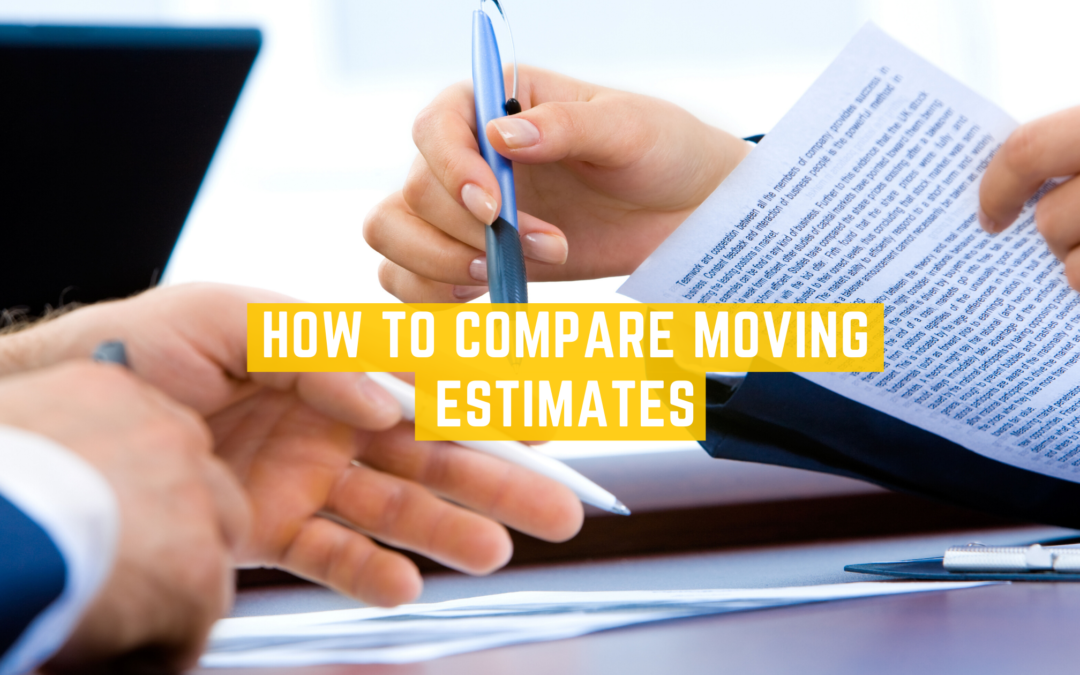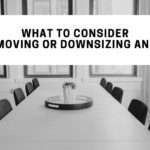Finding a mover that fits your moving service needs and budget is important. No matter if your move is company paid, or out of your own pocket, it is important to understand how the cost of your move is estimated. Therefore, you can choose the best moving company for you. Learn more about the important pieces of information that impact the estimated cost of your move.
Distance
Where you are moving and how far you are traveling is an important component of any move estimate. Based on the distance of your relocation, there are three types of moves:
Local Moves: Usually, moves under 50 miles are considered a local move. A local move is typically based on the mover’s hourly rate and number of movers. For this type of move, please note that the quote is solely an estimate and the final cost will be based on actual time. For this reason, it is important to study the actual hourly rates and how many movers that includes for move day when comparing local quotes. Make sure to also ask if there are any additional travel fees or materials costs.
Intrastate Moves: Relocations that do not leave the state but exceed 50 miles are referred to as intrastate shipments. Moving intrastate is often charged based on weight and miles and according to the state’s tariff. However, some moving companies may price based on the hourly rate. For this reason, it is best to ask the moving company how the move was quoted, so you can compare with others accurately.
Interstate Moves: Interstate or long-distance moves are any move that crosses state lines. The cost of this types of move is calculated based off the weight of the shipment and the mileage from origin to destination. Due to the additional fuel and labor requirements, interstate shipments will generally cost more than local and intrastate relocations.
Types of Estimates
For interstate moving, there are three different types of moving estimates you may receive. It is important to know the difference to accurately compare move quotes.
Binding Estimate: 1A binding estimate is an agreement made in advance between the customer and the mover that guarantees the total cost of the move based on the quantity of items and services shown on the estimate.
With this type of estimate, you will pay exactly what was quoted on your moving estimate, and you do not have to worry about any overages. However, with a binding estimate, you will not receive a reimbursement or credit if your shipment weighs less than what was estimated.
Non-Binding Estimate: 1 A non-binding estimate is the carrier’s approximation of the cost based on the estimated weight of the shipment and the accessorial services requested. A non-binding estimate is not binding on the carrier and the final charges will be based on the actual weight and tariff provisions in effect on the day of the load.
Binding Not-To-Exceed Estimate: Among one of the most popular estimate choices for interstate customers planning a move is a binding not-to-exceed estimate. This type of quote is popular because it guarantees that even if the weight of the shipment comes in higher than what was estimated, the customer is not responsible for paying any overages. The customer is only responsible for paying the original quoted price on the estimate. However, like the non-binding estimate, if the shipment’s weight is less than estimated, the customer will only be responsible for paying for the actual weight of the shipment.
Weight
The weight of your shipment is one of the most important aspects that affects the cost of your move, whether you move locally or long distance. When moving locally, any shipment greater than 10,000 lbs. will require more than one day of services, which will increase the overall cost of the move. If you are moving to another state, the larger your shipment is, the higher the cost will be. When comparing your moving estimates, it is important to make sure that all estimated weights are in line with each other. If there is an estimated weight that is significantly lower than the others, be cautious. Depending on the type of estimate, it is better to overestimate, than underestimate, otherwise you may pay significantly more for your move than you anticipated when final weights are calculated.
Move Dates
Your move date is also a factor to consider when determining the cost of your move. For local moves, weekdays are generally cheaper than weekends. Additionally, if you are relocating around or on a national holiday, extra costs may be added.
For interstate moves, rates are also at their highest all over the county between the months of May through September. This period is considered peak season for moving companies. Costs are increased during peak season to keep up with demand, since so many people prefer to move during the summer months. When comparing your estimates be sure to look at your selected move date, and how that contributes to the overall cost.
Services
Additional services such as packing and unpacking, third party services and storage will increase the cost of your move. When comparing estimates, do not forget to compare the costs of these services and make sure they are all included on each quote. The little things can add up and turn into a large portion of your estimated moving costs. To save money, consider packing items yourself, servicing your own appliances, pool tables, and televisions, or be flexible with your move date if possible.
Important Things to Know when Hiring a Mover
When comparing your final estimates, there are important requirements to look for before you sign a contract.
- A moving company should always provide you with proper documentation about the company, the services they provide, selection of coverage, prohibited items, etc.
- A moving company should only provide an estimate after a visual or virtual survey has been performed. Never accept a quote based on a phone call or email, verbal or online estimates may not be enforceable.
- Verify that your company is authorized to operate. Make sure they are AMSA certified, read reviews online, and check them out on the BBB.
We understand that choosing a moving company can be stressful. At Fry-Wagner, it is our goal to be transparent with our customers throughout the move process. We are here to answer any questions you may have about your estimate. To learn more about us, visit us online!
1 https://www.unitedvanlines.com/moving-tips/moving-glossary






